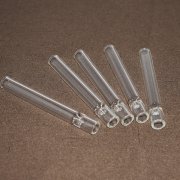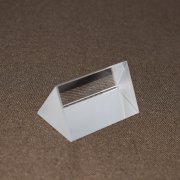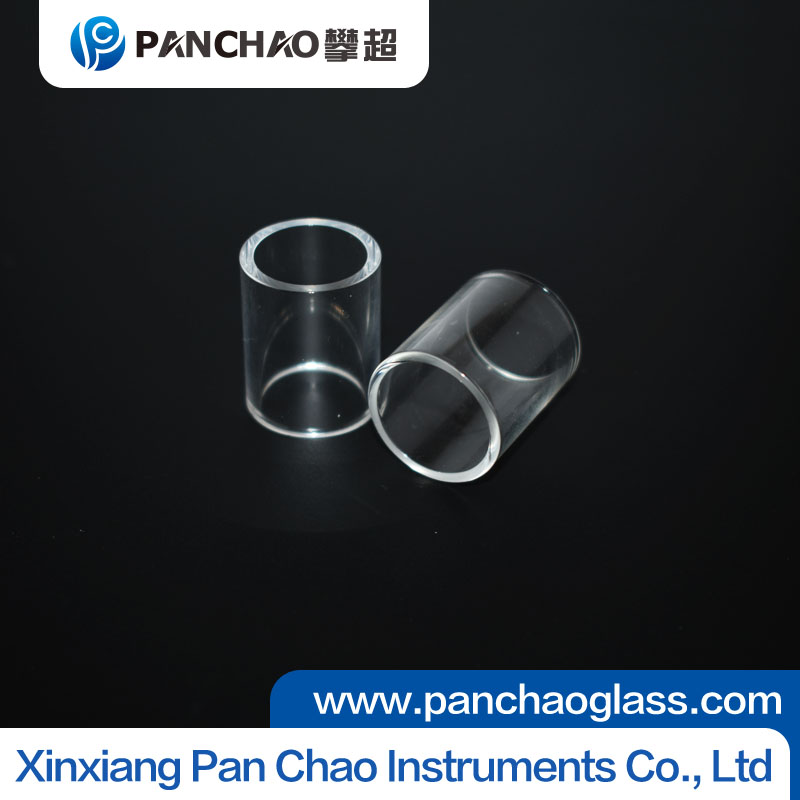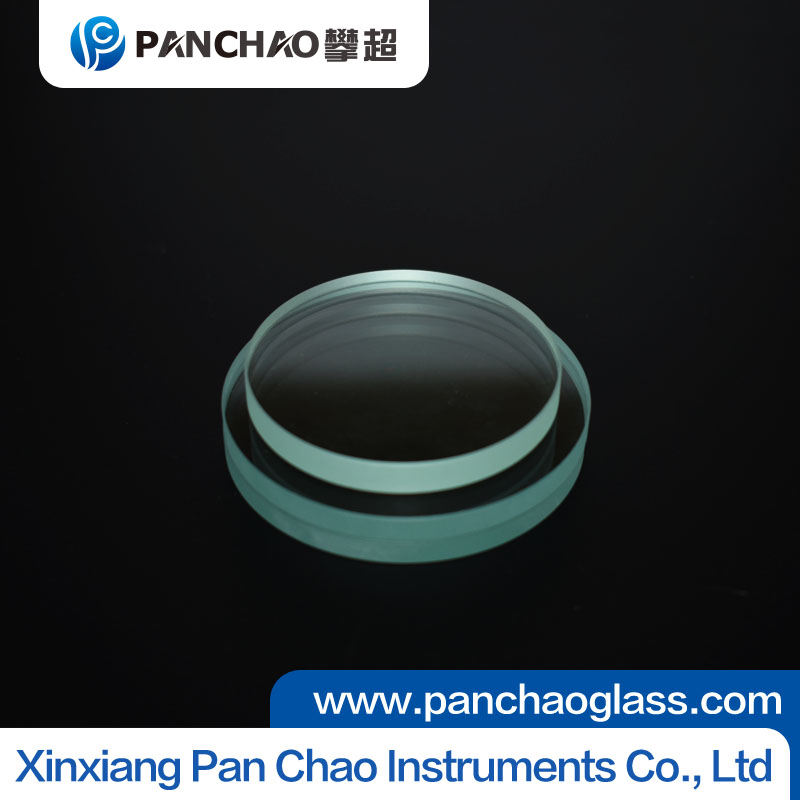
The difference between high boron silicon glass and ordinary glass
PCHAO brand industrial sight glass give you professional custom!
Website:www.panchaoglass.com
Address:Room 1624, Jing Ye Gong Yuan Guo Ji, Jin Sui road and New Second Street intersection, Xin Xiang city, Henan Province, China
Phone: +8613569413718
The difference between high boron silicon glass and ordinary glass
High boron silicon glass is a special glass material with many unique properties that make it widely used in many fields.
1. Definition and composition
High boron silicon glass, also called stiff glass or boron silicate glass, is a special kind of glass that utilizes the conductive property of glass at high temperature to achieve glass melting by heating inside the glass, and is processed by advanced production technology. Glass materials. Its main ingredients are silicon oxides (SiO₂) and boron oxides (B₂O₃), boron content is usually between 10% and 25%.
Main features

High temperature resistance: high boron silicon glass can withstand high temperatures of up to 850 degrees, and can be kept at 750 degrees for a long time, and its softening point is up to 820 degrees. deformation Or rupture.
Low thermal expansion coefficient: High boron silicon glass has a low thermal expansion coefficient, about 1/3 of that of ordinary glass, which helps to reduce the impact of temperature gradient stress, thereby enhancing its anti-breakability.
High strength and high hardness: high boron silicon glass has high strength and hardness, can withstand great pressure and impact.
High boron silicon glass has excellent transparency, can transmit more visible light and ultraviolet light, suitable for optical field.
Good chemical stability: high boron silicon glass can withstand the corrosion of acid, alkali and other strong corrosive media, suitable for chemical laboratories and chemical industry.
Low self-luminescence: High boron silicon glass has low self-luminescence, which can reduce background noise in optical instruments and improve measurement accuracy.
3. Application field
Laboratory equipment: high boron silicon glass with extremely high chemical stability and heat resistance,used in the manufacture of laboratory ware,etc.
Optical instrument: High borosilicate glass has high translucency and low self-luminescence characteristics, making it occupy an important position in optical instruments such as long-distance mirrors and reflectors.
Industrial use: high boron silicon glass is also widely used in industrial fields, such as high-temperature furnace observation window, chemical reaction tank, etc.
Household goods: such as microwave oven glass turntable, washing machine observation window, etc., also often made of high boron silicon glass.
Production process
The production process of high boron silicon glass mainly includes four processes of raw material preparation, fusion, molding and processing. After powder crushing, mixing and sieving, the raw materials melt in the high-temperature furnace to form glass liquid, and then through the molding and processing process, finally get the required high-borosilicate glass products.
Excellent Disadvantages
Advantage:
High temperature resistance, low thermal expansion coefficient, high strength and high hardness.
Good transparency, high chemical stability, low self-luminescence.
Disadvantages:
The manufacturing cost is high, more expensive than ordinary glass.
Greater fragility, easy to break, need careful handling and use.
The processing difficulty is large, requiring the use of special technology and equipment for processing and molding.
The weight is large, relatively heavy, not suitable for applications requiring light weight.
There are significant differences between high boron silicon glass and ordinary glass in many aspects, and these differences are mainly in the raw material composition, physical properties, chemical properties, and uses.
High boron silicon glass is a special glass material with many unique properties that make it widely used in many fields.
1. Definition and composition
High boron silicon glass, also called stiff glass or boron silicate glass, is a special kind of glass that utilizes the conductive property of glass at high temperature to achieve glass melting by heating inside the glass, and is processed by advanced production technology. Glass materials. Its main ingredients are silicon oxides (SiO₂) and boron oxides (B₂O₃), boron content is usually between 10% and 25%.
Main features

High temperature resistance: high boron silicon glass can withstand high temperatures of up to 850 degrees, and can be kept at 750 degrees for a long time, and its softening point is up to 820 degrees. deformation Or rupture.
Low thermal expansion coefficient: High boron silicon glass has a low thermal expansion coefficient, about 1/3 of that of ordinary glass, which helps to reduce the impact of temperature gradient stress, thereby enhancing its anti-breakability.
High strength and high hardness: high boron silicon glass has high strength and hardness, can withstand great pressure and impact.
High boron silicon glass has excellent transparency, can transmit more visible light and ultraviolet light, suitable for optical field.
Good chemical stability: high boron silicon glass can withstand the corrosion of acid, alkali and other strong corrosive media, suitable for chemical laboratories and chemical industry.
Low self-luminescence: High boron silicon glass has low self-luminescence, which can reduce background noise in optical instruments and improve measurement accuracy.
3. Application field
Laboratory equipment: high boron silicon glass with extremely high chemical stability and heat resistance,used in the manufacture of laboratory ware,etc.
Optical instrument: High borosilicate glass has high translucency and low self-luminescence characteristics, making it occupy an important position in optical instruments such as long-distance mirrors and reflectors.
Industrial use: high boron silicon glass is also widely used in industrial fields, such as high-temperature furnace observation window, chemical reaction tank, etc.
Household goods: such as microwave oven glass turntable, washing machine observation window, etc., also often made of high boron silicon glass.
Production process
The production process of high boron silicon glass mainly includes four processes of raw material preparation, fusion, molding and processing. After powder crushing, mixing and sieving, the raw materials melt in the high-temperature furnace to form glass liquid, and then through the molding and processing process, finally get the required high-borosilicate glass products.
Excellent Disadvantages
Advantage:
High temperature resistance, low thermal expansion coefficient, high strength and high hardness.
Good transparency, high chemical stability, low self-luminescence.
Disadvantages:
The manufacturing cost is high, more expensive than ordinary glass.
Greater fragility, easy to break, need careful handling and use.
The processing difficulty is large, requiring the use of special technology and equipment for processing and molding.
The weight is large, relatively heavy, not suitable for applications requiring light weight.
There are significant differences between high boron silicon glass and ordinary glass in many aspects, and these differences are mainly in the raw material composition, physical properties, chemical properties, and uses.
Related articles
- The difference and relationship between bulletproof glass, an
- The difference between borosilicate glass and ordinary glass.
- What is the difference between quartz glass and ordinary glas
- What are the characteristics of quartz glass?
- What is the difference between float tempered glass and ordin
- What are the advantages of high borosilicate glass water cups
- What are the advantages of smart switch glass panels
- What are the benefits of processing glass with quartz square
- The difference between high borosilicate glass,low borosilica
- Notes on the application of fireplace glass
Products
acrylic display center
Contact Us

Xinxiang Pan Chao Instruments Co., Ltd.
Tel: +86 13343800331
Contact person:Carrie Niu
Fax: 0373 303 0331
Email:sales@panchaoglass.com






